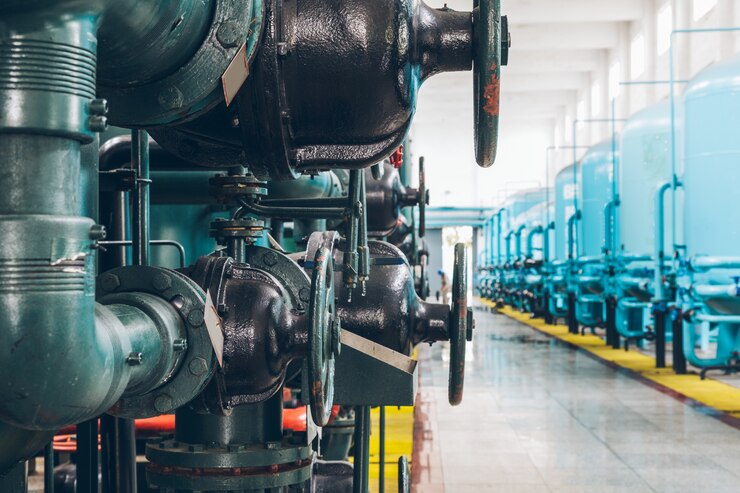The oil and gas industry remains a significant source of global energy, and oil and gas transmission plays a crucial role in delivering these resources. But in a world increasingly focused on renewable energy solutions, is this a stable and rewarding career path? This blog delves into the pros and cons of a career in oil and gas transmission, helping you make an informed decision.
Pros: Competitive Salaries and Benefits
Oil and gas transmission offers attractive compensation packages. Jobs in this sector often come with:
- High Salaries: Due to the specialized skills and knowledge required, oil and gas transmission professionals typically earn above-average salaries. According to the Bureau of Labor Statistics (BLS), pipeline workers held median annual wages of $61,530 (May 2022) [BLS pipeline worker salary].
- Comprehensive Benefits: Many oil and gas companies provide extensive benefits packages, including health insurance, retirement plans, and paid time off.
Diverse Career Opportunities
The oil and gas transmission sector offers a variety of career paths. Here are some examples:
- Pipeline Engineers: Design, oversee construction, and ensure the safe and efficient operation of pipelines.
- Pipeline Operations Specialists: Monitor pipeline systems, identify and address potential issues, and ensure regulatory compliance.
- Maintenance Technicians: Perform routine maintenance and repairs on pipelines and related equipment.
- Control Room Operators: Monitor and control the flow of oil and gas through pipelines.
Transferable Skills Development
Working in oil and gas transmission equips you with valuable skills applicable across various industries. These include:
- Technical Expertise: Gaining in-depth knowledge of pipeline systems, their operations, and maintenance procedures.
- Problem-Solving Skills: Developing the ability to identify and troubleshoot issues within complex systems.
- Project Management: Participating in the planning, execution, and monitoring of pipeline construction and maintenance projects.
- Safety Protocols: Adherence to strict safety regulations is paramount in this field, fostering a strong safety culture.
Stability in the Short Term
Despite the push towards renewable energy, oil and gas are still expected to meet a significant portion of global energy demand in the near future. The International Energy Agency (IEA) forecasts that oil demand will plateau by 2027 [IEA oil demand]. This indicates a continued need for a skilled workforce in oil and gas transmission for the foreseeable future.
Cons: Environmental Concerns and Long-Term Uncertainty
The environmental impact of the oil and gas industry is a significant concern. Factors like:
- Greenhouse Gas Emissions: Fossil fuel extraction and transportation contribute to greenhouse gas emissions, accelerating climate change.
- Potential for Leaks and Spills: Oil spills can have devastating consequences for ecosystems and communities.
These factors raise questions about the long-term sustainability of the oil and gas industry.
Focus Shifting Towards Renewables
The global energy landscape is undergoing a significant shift towards renewable energy sources like solar, wind, and geothermal. Governments and corporations are increasingly investing in renewable energy infrastructure, leading to:
- Job Growth in Renewables: As the renewable energy sector expands, new job opportunities will arise in areas like solar panel installation, wind turbine maintenance, and battery storage technology.
- Potential Decline in Oil and Gas Jobs: The long-term reliance on oil and gas is likely to decrease, potentially leading to a decline in job opportunities in this sector.
Considering a Career in Oil and Gas Transmission
While the oil and gas transmission sector offers competitive salaries, transferable skills, and short-term stability, individuals considering this path should acknowledge the environmental concerns and the long-term shift towards renewable energy. Here are some additional factors to consider:
- Interest in the Field: Ensure your personal interests align with the technical aspects and work environment of the oil and gas industry.
- Educational Qualifications: Many positions require specific degrees in engineering, geosciences, or related fields.
- Focus on Sustainability: If environmental responsibility is a priority, seek out companies that are actively implementing strategies to reduce their environmental impact.
Conclusion
Oil and gas transmission currently offers a viable career path with good compensation and opportunities for skill development. However, the long-term outlook for this sector is uncertain due to the growing emphasis on renewable energy. Carefully weighing the pros and cons, considering your personal interests, and staying updated on the evolving energy landscape will be crucial in making an informed decision about a career in this field.

